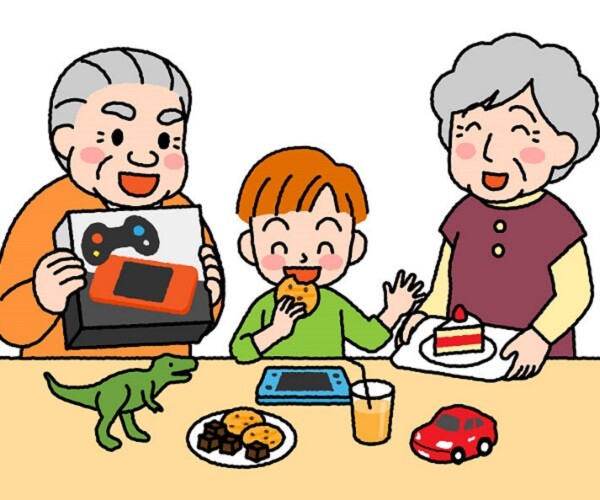Experts have identified four distinct styles of parental love, each with its unique characteristics and impact on a child’s development. However, not every child wants or is able to receive love in the way parents express it.


Are these four styles of parental love pushing your child away?
1. Micromanaging Every Little Detail
From the order of dressing to the choice of footwear, parents make all the decisions. Take the example of Wang Meng, a student at Peking University, who wrote a 10,000-word letter to his parents after moving out. In this letter, he expressed how suffocated he felt by their love and control over his life.
For 18 years, Wang felt controlled and reminded about everything from eating, sleeping, studying, choosing hobbies, and even spending time with friends. No wonder he felt “liberated” when he got into university and left home.
When parental love crosses boundaries and loses its balance, it becomes a burden for children.

2. Self-Sacrificing to Fulfill All Material Needs
This style of love involves parents sacrificing their own comfort to provide the best material things for their children. For instance, a mother might wear ordinary clothes but buy designer outfits for her child. Or she might wear worn-out shoes while purchasing the most expensive pair for her child.
While this may seem like an act of love, it can foster selfishness and a lack of empathy in children. Over time, children may take their parents’ sacrifices for granted and fail to appreciate the value of family love and support.
3. Overprotective and Overindulgent
Young children yearn for independence and exploration. When they are constantly prevented from doing things on their own, such as eating or dressing, it hinders their natural development. Children need to feel a sense of autonomy and self-expression.
By not allowing them to take on simple tasks, parents inadvertently make them feel helpless and disrespected. This can lead to serious consequences in the future, as children who don’t learn self-reliance and responsibility often lack confidence and become dependent on others.

4. Over-Controlling and Intrusive
When parents intrude too deeply into their children’s decisions, from choosing a college major to selecting a partner or career path, it gives children the impression that their lives are not their own.
While parents may believe they are acting in their children’s best interests, this level of control undermines their self-confidence and ability to become self-reliant.

Five phrases to help parents change their approach and raise self-reliant, loving children:
1. “No matter what, we love you.”
Parental love should be unconditional, not dependent on a child’s actions or achievements. Even when children face challenges, make mistakes, or make decisions that parents disagree with, their love remains constant.
This unconditional love provides a sense of security and encourages exploration without fear. Knowing that their parents are a constant source of support, children will be bolder in their experiments, learning from their mistakes, and developing their unique personalities.
2. “This is our advice, but the decision is yours.”
Allow children to make their own decisions and solve their problems. When they succeed, they will build self-confidence, knowing that they are capable. This is crucial for developing independence and self-reliance, as they learn to trust their judgment and decision-making skills.
When they make mistakes, instead of criticizing or immediately intervening, let them recognize their errors and understand that mistakes are a natural part of learning. Encourage them to view mistakes as opportunities for growth and provide a supportive environment for them to correct their errors.

3. “We believe in you.”
This simple phrase conveys trust and encouragement, giving children a sense of security and motivation as they navigate their journey to adulthood. When parents express their belief in their children, it boosts their self-worth and inspires them to strive for their best.
Avoid comparing your child to others, as each child has unique strengths and weaknesses. Comparisons can be hurtful and place unrealistic expectations on children, leading to feelings of pressure and inadequacy.
4. “I understand how you feel.”
This simple phrase carries immense power in building a strong relationship. For instance, when a child comes home with a low test score and says, “Mom, I didn’t do well,” a mother can respond with empathy: “I understand your disappointment, and I’m also sad about it. Let’s work harder for the next one.”
In difficult moments like these, it’s essential for parents to listen and offer compassion.
5. “Can you help us with something around the house?”
Asking for your child’s help not only makes them feel useful but also boosts their confidence. For example, you can ask them to take out the trash, pick vegetables, clear the table after a meal, or fold laundry. Say something like, “We bought a lot of groceries today. Can you help us carry them, please?”
In conclusion, parental love is sacred, but it’s also important to give children space and empower them to become independent, loving individuals.





































